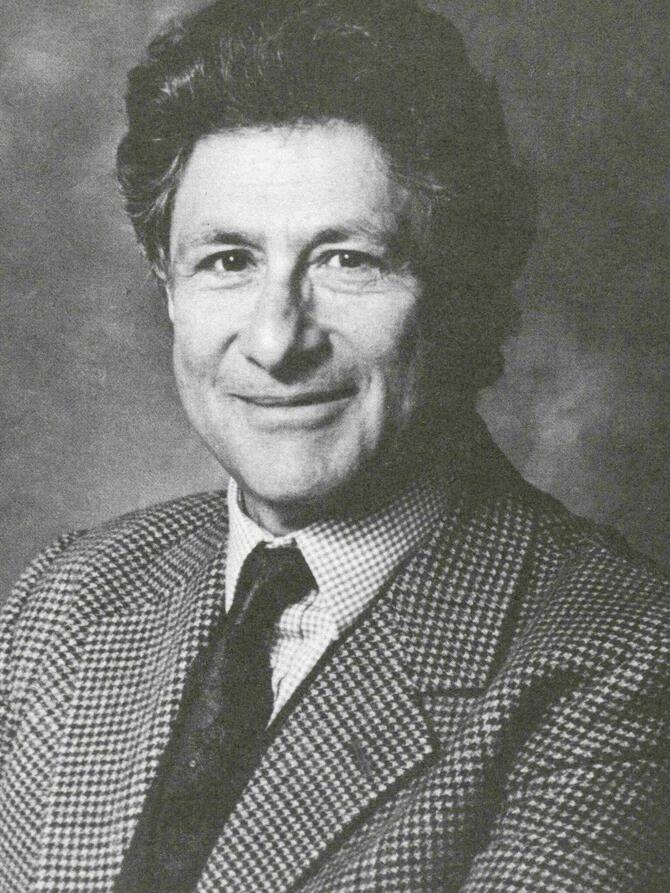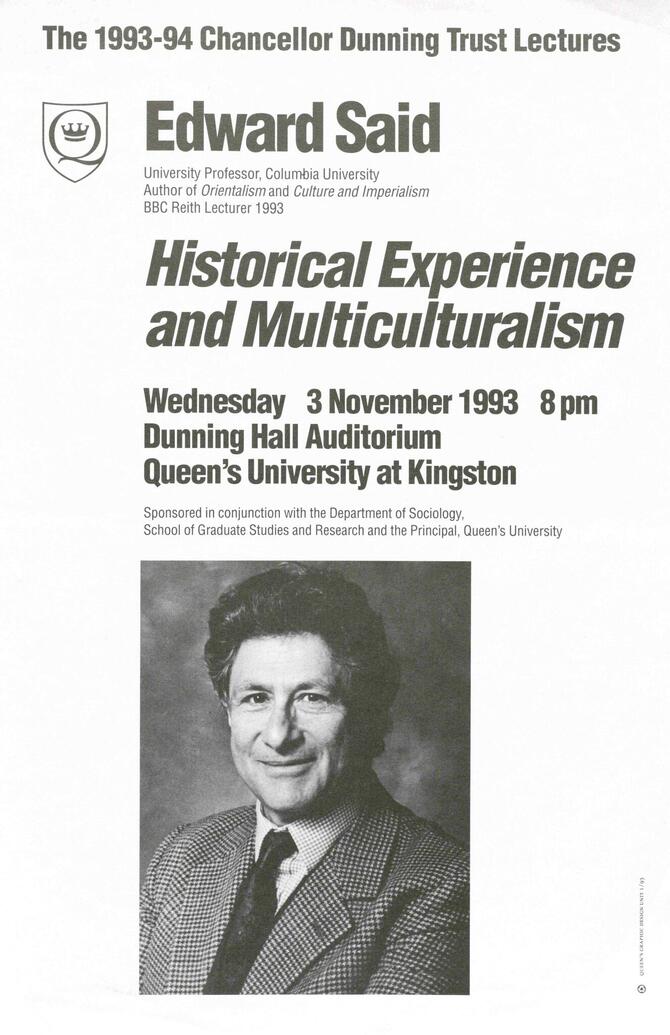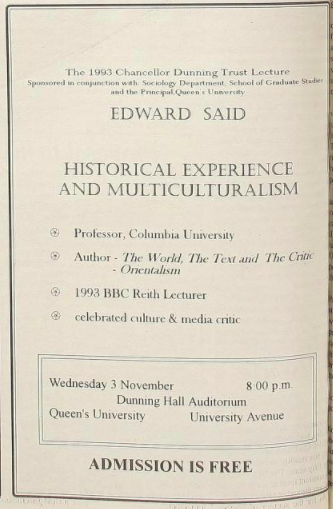
Edward Said was a Palestinian-American academic, political activist, and literary critic who was a founder of postcolonial studies. After receiving a BA at Princeton, he attended Harvard, where he specialized in English literature, graduating with a PhD in 1964. He joined the faculty at Columbia University in 1963 as a lecturer before being promoted to assistant professor of English and comparative literature in 1967. In 1978, he published Orientalism, his best-known work, and one of the most influential scholarly books of the twentieth century. In it, Said examined Western scholarship on the “Orient,” specifically of the Arab Islamic world, arguing that it was biased and projected a false and stereotyped vision of “otherness” on the Islamic world that in turn facilitated and supported Western colonial policy. Said wrote numerous books and articles in support of Arab causes and Palestinian rights. He was elected to the Palestine National Council in 197. His many other books include Culture and Imperialism (1993), The Politics of Dispossession (1994), and Nationalism, Colonialism, and Literature (1988). Said passed away in 2003.
Said’s Dunning Trust lecture was held on 3 November 1993. While at Queen’s, he was interviewed by the Queen’s Quarterly. He discussed his newest book, Culture and Imperialism, which argues that the Golden Age of the English novel was inextricably linked to the building of the British Empire. Imperial control had an imaginative side, he said, which was part of the structure of identity that the novel was bound up in. He also discussed how he became involved in the struggle for Palestinian rights, and how issues of dispossession, exile, and human rights informed his most famous work, Orientalism.

